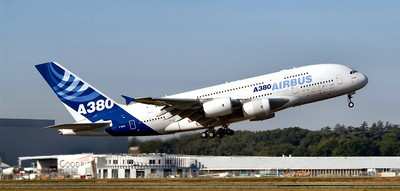Thu, Dec 14, 2006
Advertisement
More News
 NBAA Responds To GA/BA Operational Restrictions
NBAA Responds To GA/BA Operational Restrictions
Bolen Issues Statement Reinforcing Need To Reopen Government The National Business Aviation Association’s President and CEO issued the statement below in response to further >[...]
 Boeing Deliveries Surge to Pre-Pandemic Levels
Boeing Deliveries Surge to Pre-Pandemic Levels
Output May Reach Its Best Since 2018 Despite Trailing Behind Airbus Boeing delivered 53 jets in October, bringing its 2025 total to 493 aircraft and marking its strongest output si>[...]
 Spirit Forecasts Financial Turbulence
Spirit Forecasts Financial Turbulence
Low-Cost Airline Admits “Substantial Doubt” It Can Stay Airborne Spirit Airlines has once again found itself in financial trouble, this time less than a year after clai>[...]
 Singapore Adds a Price Tag to Going Green
Singapore Adds a Price Tag to Going Green
Travelers Leaving Changi Will Soon Pay for Sustainable Fuel Starting April 2026, passengers flying out of Singapore will find a new fee tucked into their tickets: a Sustainable Avi>[...]
 NTSB Final Report: Arlie L Raber III Challenger 1
NTSB Final Report: Arlie L Raber III Challenger 1
Pilot Was Having Difficulty Controlling The Airplane’S Rudder Pedals Due To His Physical Stature Analysis: The pilot was having difficulty controlling the airplane’s ru>[...]
blog comments powered by Disqus




